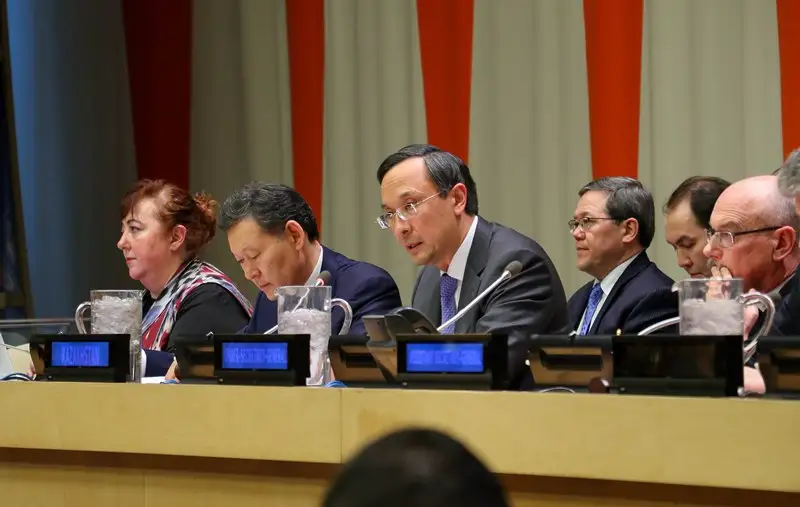Draft Code of Conduct for the achievement of a terrorism-free world submitted to UNSC

The event was attended by the delegations of more than 100 of the Organization's member states. Among the participants were also Deputy Prime Minister and Minister for Foreign Affairs of Kuwait Sheikh Sabah Al-Khaled Al-Sabah and Deputy Foreign Minister of Afghanistan Hekmat Karzai.
The Under-Secretary-General of the United Nations Counter-Terrorism Office Vladimir Voronkov and Assistant Secretary-General for Political Affairs, Miroslav Jenča presented their reports.
Opening the meeting, Minister Abdrakhmanov stressed the importance of goals outlined in the document, such as the Global Anti-Terrorist Coalition by the year 2045, for the fight against international terrorism.
Presenting his report, Vladimir Voronkov welcomed the adoption of the Joint Action Plan (JPoA) for the implementation of the Global UN Counter-Terrorism Strategy in Central Asia and Kazakhstan's contribution as its donor. He also highly praised Astana's initiative on developing the Code of Conduct, which is expected to be finalized during the next biennial review of the Counter-Terrorism Strategy's implementation and the meeting of the heads of counter-terrorism structures of the member states scheduled for June 2018.
In his report, Miroslav Jenča noted the similarities of the Organization's and Kazakhstan's goals with regards to counter-terrorism and wished Astana success in this endeavor.
Mr. Jenča praised the JPoA as a model for other parts of the world, noting the connection between protracted conflicts, violent extremism and terrorism, as well as the need to regularly update comprehensive measures to prevent armed conflicts in the modern world, including through the use of preventive diplomacy.
In his turn, Deputy Foreign Minister of Afghanistan Hekmat Karzai emphasized the document's role as an important step in strengthening international cooperation and the United Nations' counter-terrorism architecture. In his opinion, the document should receive a collective support of the international community.
The participants supported Kazakhstan's initiative and expressed readiness to continue discussions until the document is finalized forming an important basis for strengthening international cooperation in the fight against terrorism.